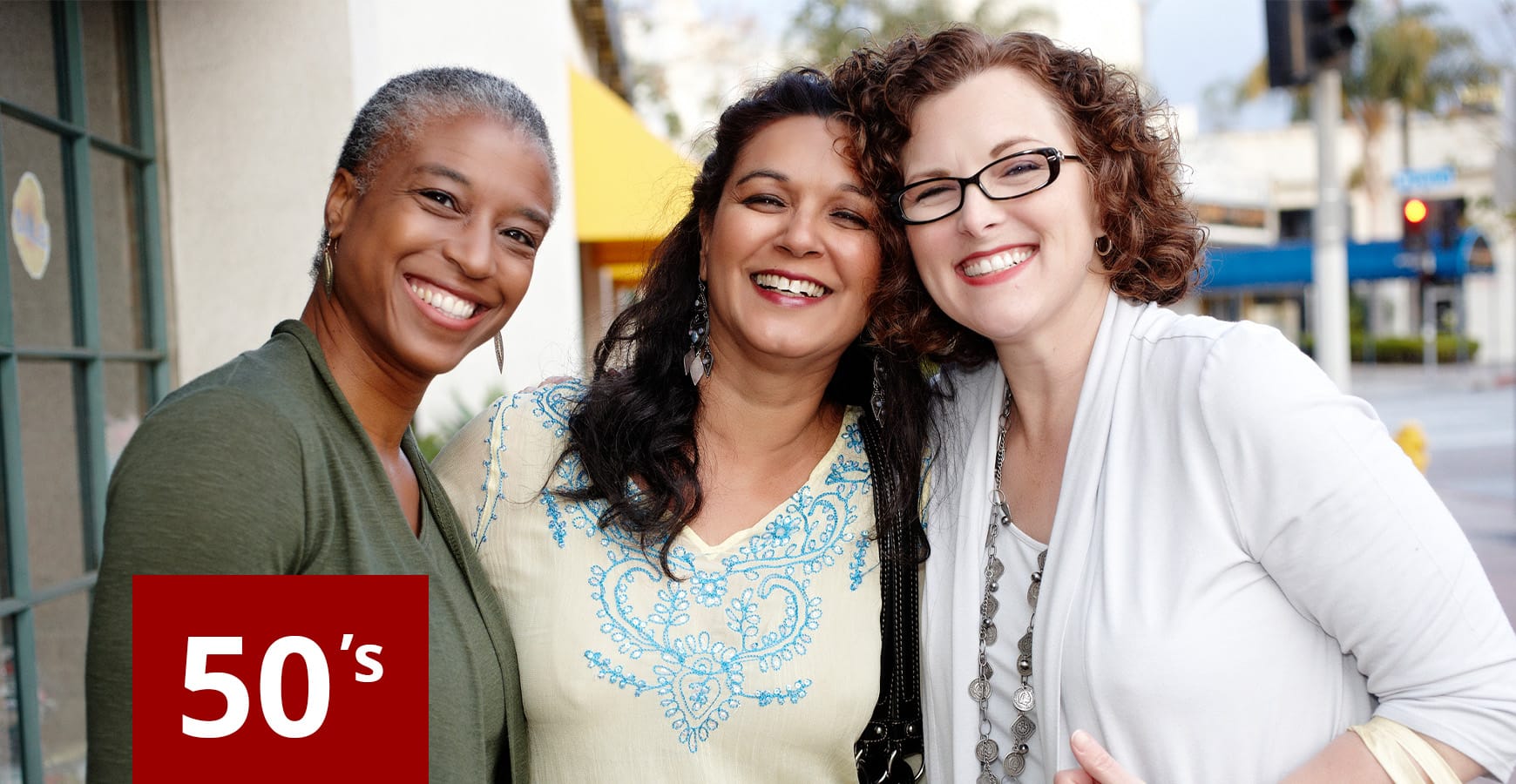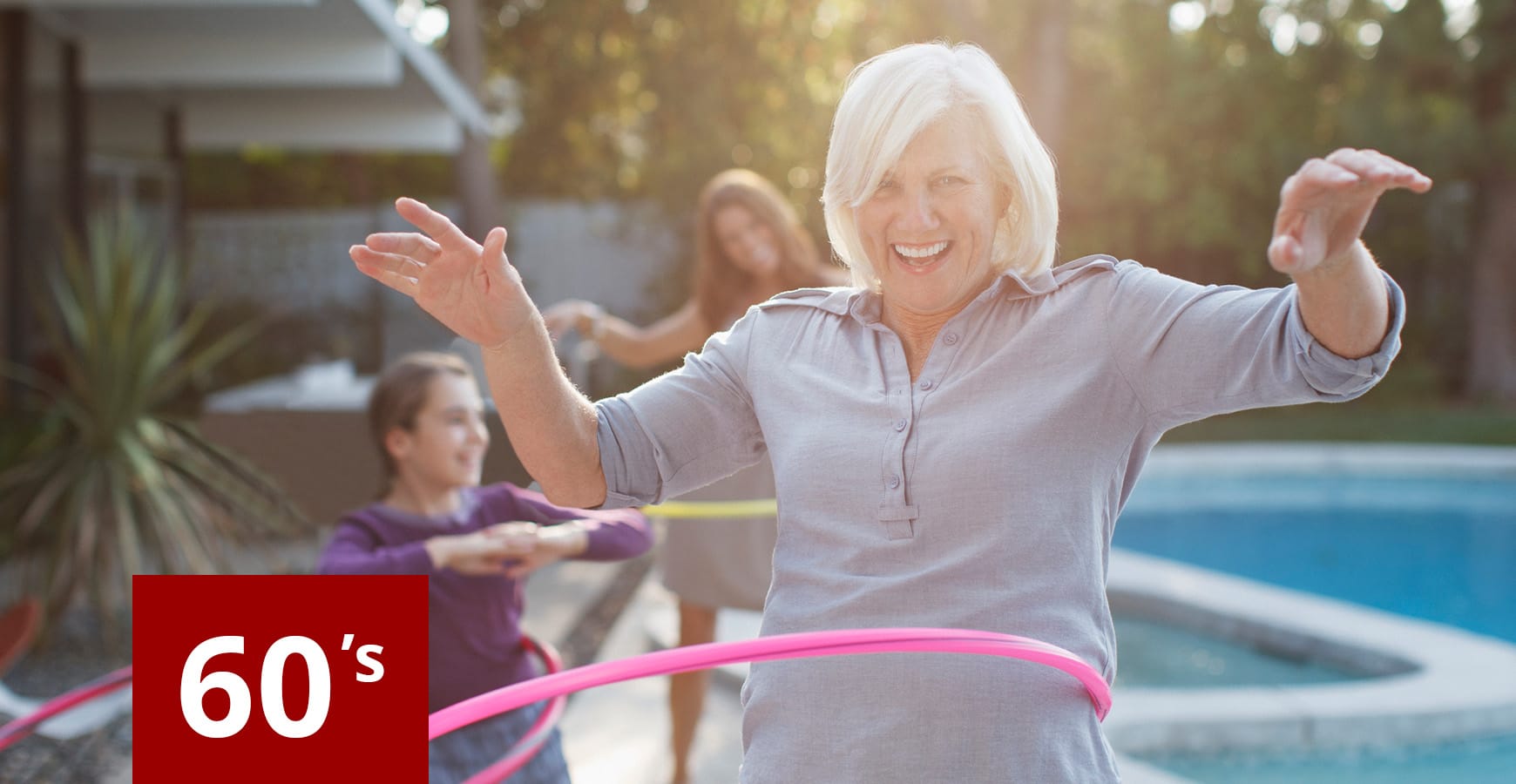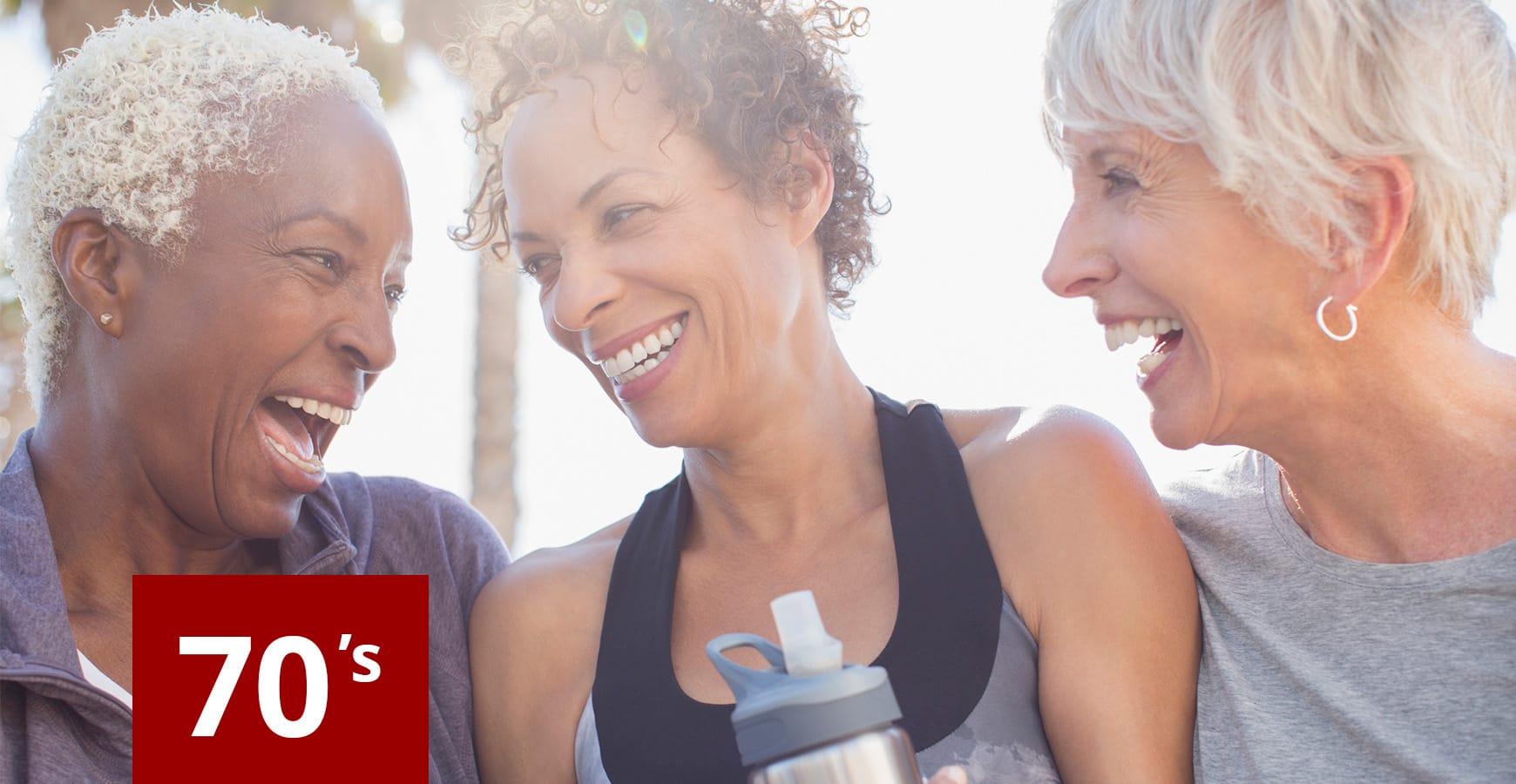As we progress through adulthood, our bodies continue to change. Here is what to look out for — and how to stay healthy — from your 40s to your 70s.

Your Body at 40
As you enter your 40s, you may find yourself dealing with some changes in your body. Knowing what’s in store can help you prepare for lifestyle changes to stay healthy and happy for decades to come.
The number on the scale might start creeping up
What to expect: Both men and women will probably notice it’s easier to gain weight as they move past 40. That’s because our resting metabolic rate, or the rate at which our body burns calories, slows. In addition, as we age, we might not be as physically active, and because muscle burns more calories than fat, losing muscle may mean gaining weight.
What can help: Optimizing your calorie intake and incorporating regular physical activity into your life can help prevent weight gain. Maintaining a healthy weight is an important way to reduce your risk for age-related conditions such as heart disease, diabetes and bone and joint problems.

Your Body at 50
We’ve all heard that 50 is the new 40. Maybe it’s because many 50-somethings are just as active as 40-somethings. Whatever the case, yes, you’re older, but you’re also wiser: You don’t sweat the small stuff (although you may sweat the hot flashes!). Here’s what to expect in your 50s.
You’ll hit a new milestone
What to expect: The start and end of menstruation mark huge physical and emotional milestones in a woman’s life. Although your cycle might have been wonky for years, sometime after 50 it will cease altogether (if it hasn’t already).
What can help: Changing levels of estrogen in your body can wreak unpleasant side effects like hot flashes, night sweats, vaginal dryness, sleep issues and anxiety. You can limit hot flashes by dressing in layers, keeping your house cool and avoiding alcohol; and don’t worry, they don’t last forever. Vaginal estrogen that comes in creams, tablets or rings can help with vaginal dryness and make sex more comfortable. Talk to your doctor about hormone replacement therapy (HRT) to see if it’s right for you. Also, protect against postmenopausal bone loss with calcium in your diet or with supplements (as well as vitamin D to help absorb it) and weight-bearing exercises.

Your Body at 60
As the saying goes, age is just a number. A growing body of research indicates that, indeed, a positive outlook on life can lead to improved health and longer life. An upbeat mental state can, for example, reduce the risk of heart disease, improve blood sugar levels and lower blood pressure. A positive attitude toward aging may also protect against dementia — even if you’re genetically at risk for it. The key is to have an active lifestyle, full of meaningful pursuits. Of course, you’ll also want to get the proper screenings and know what to expect, so you can proactively address any health concerns.
You may find yourself counting sheep
What to expect: People over 60 need just as much sleep as younger adults — but they often don’t get it. Insomnia is typically caused by factors like stress, depression or long work hours, but it is also linked to medical conditions such as diabetes, heart disease or pain from arthritis. Weight gain, too, can lead to sleep apnea, in which the body isn’t getting enough oxygen, causing frequent interruptions of sleep at night.
In addition, many older adults tend to get sleepy earlier in the evening and awaken earlier in the morning than they did when they were younger. This is a circadian rhythm problem called advanced sleep phase disorder (ASPD) or “the morning lark.”

Your Body at 70
Look around at your friends in the silver fitness class or on the bike path. Check out who’s consulting at your workplace or offering coaching services in the community. They’re people just like you, who haven’t let age stop them — in fact, they’re gaining energy and peace of mind from their activities. Getting older doesn’t have to signal a decline; in fact, the more active you stay, the healthier and happier you’re likely to be. Of course, your 70s may bring some changes you’ll want to understand and look out for.
You’re all ears, so why are you straining to hear?
What to expect: According to the National Institutes of Health, it’s not unusual for people in their 70s to have some degree of hearing loss. It usually results from a combination of long-term noise exposure; medical conditions and diseases, such as high blood pressure or diabetes; and genetic risk.
Age-related hearing loss is very common in people over 70. Many times, the first symptom of hearing loss is either tinnitus (a ringing or buzzing in the ear) or difficulty understanding what people are saying in a noisy environment, such as a restaurant.

